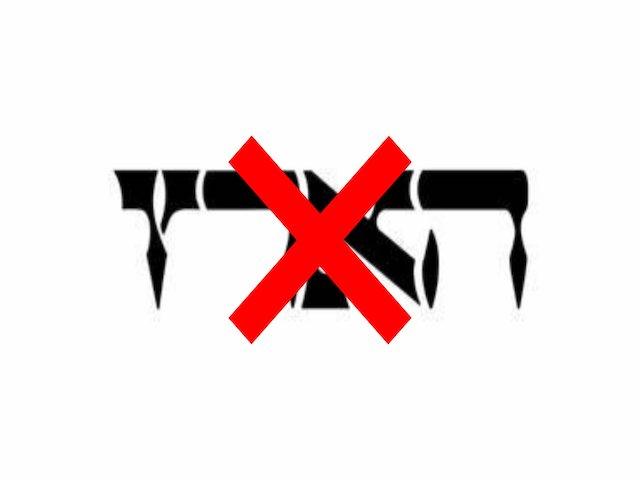In a decisive move on November 23, Israeli Communications Minister Shlomo Karhi took a firm stance against the progressive newspaper 'Haaretz.' He proposed a government resolution to cease all state advertisements, subscriptions, and commercial ties with the publication. This action comes in response to what Karhi perceives as 'Haaretz's dissemination of defeatist and ostensibly misleading propaganda during wartime.
This proposal has ignited a debate about press freedom, drawing criticism from the International Federation of Journalists (IFJ). The IFJ has called on the Israeli government to reconsider its decision, asserting that this move might impinge on media pluralism and the public's right to information.
The controversy stems from Haaretz's reporting on the October 7 Hamas-led massacre. A contentious article in the Hebrew edition of Haaretz, relying on an anonymous police source, suggested that an IDF helicopter might have inadvertently harmed civilians during the event. This report has been widely used internationally by critics of Israel to challenge the narrative of Hamas’s culpability in the attacks.
Bro you know I love you.
— 𝐆𝐚𝐥 𝐒𝐡𝐚𝐥𝐞𝐯 🎧 (@Dr_logicaI) November 23, 2023
But that's incorrect. This is the biggest propoganda lie told throughout this war.
There is absolutely zero evidence of an apache helicopter shooting at the festival site.
No one has confirmed the "vague" statements made by Haaretz, and even the… pic.twitter.com/mF3mYjTzNK
However, the Israel Police clarified that their investigation did not extend to IDF activities, thus offering no evidence of civilian harm due to aerial operations. They urged media outlets to rely on official sources for accurate reporting.
The article's misinterpretation on social media platforms has led to widespread misinformation, erroneously accusing Israel of causing civilian fatalities on October 7. These allegations lack factual basis and contradict detailed reports about the massacre.
Israel's Minister of Communications, Shlomo Karhi, has proposed cutting off government funding to the far-left newspaper Haaretz due to its false and subversive coverage.
— Shelley G (@ShelleyGldschmt) November 24, 2023
Here is his explanation: https://t.co/G3FzF3E87H pic.twitter.com/ZX4zgSOBvB
Minister Karhi's proposal is unprecedented in Israeli media history. It follows the enactment of emergency regulations on October 20, permitting the temporary ban of media outlets deemed to undermine national security.
Earlier, on November 13, the government restricted access to Al Mayadeen, a Hezbollah-aligned Lebanese TV channel, citing national security threats. This move, like Karhi's latest proposal, was criticized by the IFJ.
It would be some kind of delicious irony if the lies and distortions which Haaretz routinely print about Israel end up guiding the younger generation in USA to sit out the election and then....
— Dr Brian of London 🇮🇱 (@brianoflondon) November 29, 2023
Trump! https://t.co/L44MOxquPh
In a letter to Cabinet Secretary Yossi Fuchs, Karhi condemned Haaretz's editorial stance during the war, labeling it a provocative tool for Israel's adversaries.
Amos Schoken, the publisher of Haaretz, responded to the financial sanctions proposal, implying that government opposition makes Haaretz a crucial read.
Meanwhile, the government refrained from shutting down the Qatari news channel Al Jazeera, as Karhi had suggested. This decision was reportedly influenced by ongoing hostage mediation efforts involving Qatar, a known supporter of Hamas.
It is time that @shlomo_karhi initiate moves to close down all the news outlets that have been allowed to spread lies and hatred against the state.
— ElBluemountain #BringThemAllHome (@EBluemountain1) November 14, 2023
AL Mayadin
Al Jazeera and definitely @haaretzcom
There should be no room for them to work in Israel.
Raise your hand if you agree.
While the IFJ is clearly an organization that itself is biased, based on its language and continued use of the term "occupied" territory and its failure to call Al Mayadeen or Al Jazeera out for what they are, mouthpieces for terror groups and its funding base, The Judean will print the IFJ statement in the interest of fairness:
IFJ Secretary General Anthony Bellanger said: “We are extremely concerned over Israel’s authoritarian drift that undermines media pluralism and the public’s right to know. The Israeli government is using national security as an excuse to censor critical media, whether it is foreign or national, or any discourses that deviate from the official narrative. The IFJ urges the government to review its decision and stop slamming press freedom in the country. We express our solidarity with Haaretz journalists”.


